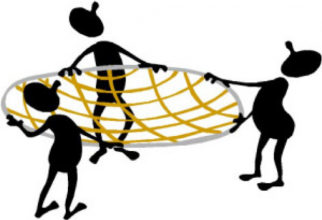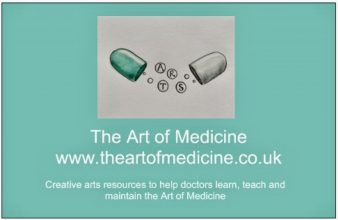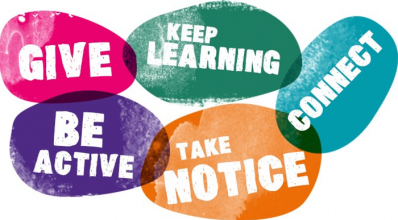
Taking care of your health and wellbeing is so important that we have created a whole page of ideas and resources to help you cope better in such extraordinary and challenging times. Back in March 2020 we knew the coronavirus pandemic would be a marathon and not a sprint, but the onset now of a second wave of infection is testing everyone’s physical and mental resilience. So everyone needs to take steps to maintain their physical health and their mental wellbeing. (Page updated 30th October 2020)
The resources on this page are organised in five levels:
Personal
Practice or Trust
GP Training Scheme
HEE Yorkshire and Humber
National
Personal Resources
In order to survive and thrive in work and life you need a variety of positive coping strategies that you use on a daily basis. Unfortunately during COVID you may have found that many of the things you normally do to maintain your wellbeing are no longer possible- your dance class, a trip to the cinema, a coffee or beer with a friend. So, in order to maintain your wellbeing you may need to do things differently and use alternative strategies, and that’s hard when life is already challenging.
If you can, make time over the next week to identify what you used to do to maintain your health and wellbeing and then decide what changes you need to make to ensure you have a variety of positive coping strategies that you can use during COVID. Write these new strategies down, take a photo of the list, put the list somewhere visible, and most importantly start using these new strategies and keep doing them.
There are more in depth resources about developing positive coping strategies, including useful books about ‘surviving and thriving in work and life’ on this site. (click icon to access)
Here are 5 things you can do now
Who is holding your safety net?

You could think about life as walking a tight rope, sometimes it feels easy, sometimes you need something to help you balance, but it’s always easier knowing that there is a safety net below in case you fall. Take time to identify who is holding your safety net, use them as needed for support, sometimes just knowing they are there can help. As well as family and friends, your CS, ES and TPD should be people you can rely on for support.
Three little things every night

There is evidence from the amazing founder of positive psychology, Martin Seligman that the ability to recognise what has gone well and things you should be proud of correlates strongly with wellbeing. Every night before you go to bed write down three things you have done well, are proud of or feel good about. If you do this regularly it builds your resilience and enables you to view the world more optimistically and be better equipped to survive and thrive.
Focus on the light at the end of the tunnel

It is helpful to take each day minute by minute, hour by hour, this can stop you feeling overwhelmed by the number and enormity of daily tasks. But it is also important to spend time looking ahead at the light at the end of the tunnel, and remaining hopeful. Click here to think more about hope.
Connecting
Find something that enables you to connect external trauma, distress or challenge with an inner world of calm. For me what works is reading a poem, like this one and imagining myself as the cork. For you it might be a picture, a photo of your family, a piece of music, a manta or wise-saying. Again, something to have on your phone, or to look at last thing at night before you try to sleep.
Remember these 5 Ways to Wellbeing
These 5 things can make a BIG difference
These are some really useful online resources for helping you maintain your wellbeing
Headspace have made their mindfulness and meditation resources available free to all NHS staff until the end of 2020. The Headspace app contains hundreds of easy-to-follow guided meditations – with topics ranging from stress and sleep, to prioritisation and creativity. You need an NHS email address to access this for free.
Mental Health UK Advice about looking after mental health whilst at home, helping others during self-isolation and advice for carers
Mind Mental Health Charity supporting patients with mental health problems with an advice page about Mental Health and COVID
Unmind have offered free access for NHS workers during COVID-19 outbreak. I’ve not used this site before so if you do use it please give me some feedback- Nicola
Sleepio and Daylight have also offered free access for NHS workers for 2020.
Dr Phil Hammond’s CLANGERS for all
Rightsteps resources for managing wellbeing
Advice for suffers of long COVID
Your Practice or Trust
However challenging work is every doctor in training should feel safe at work and know who to talk to if they have concerns.
You should ensure you still have regular catch-up time with your clinical supervisor for debrief, feedback and support. This might have to happen remotely. If your CS has been redeployed or is off work please make sure some else is acting in this role to support you at work.
Many work places have adapted their coffee & chat or joint lunch breaks so people still feel connected and supported in work. Find out what is happening in your workplace, and set something up if you are feeling isolated.
You might consider setting up a regular remote meeting for a group of work colleagues so you can have time to talk safely about work related issues, your fears and concerns. Many work teams have a WhatsApp group – you don’t need to be actively involved in this but it can help to keep in touch.
Every employer will have a process for reporting and managing sickness and isolation due to the COVID Pandemic, make sure you know who to contact if needed. All employees should also have access to Occupational Health for advice and support.
PPE is a vital resource to keep you safe at work.There has been a significant amount of debate in the press about the availability of PPE and when to use it. You should be clear about when to use PPE and how to safely put it on and take it off.
GP Training Scheme
GP Scheme Learning (HDR) and practice-based learning and education should continue as normal. Most of this will be happening remotely on Zoom or Teams. HEE and your Scheme will notify you if this changes. It is really important you are able to ‘attend’ teaching and continue to receive the in-work supervision, tutorials and debriefs as normal.
Each trainee should have a named TPD who you can contact for support and advice.
Your Educational Supervisor should also be available for advice, support and guidance. Your ESR will still be happening so make contact now to arrange a date to meet remotely- phone, Zoom, FaceTime, Skype, Whereby all can work well.
WhatsApp is a great way to maintain contact with your colleagues either in small groups or as a whole scheme. Check out what your scheme is doing, and if there is no group why not enlist the support of GPST admin to help set one up.
Many schemes have websites with masses of great resources, here are a few of the good ones:
HEE Yorkshire and Humber
Wellbeing Common Room

During the first wave of COVID a group of leadership fellows set up and ran a weekly drop in session to support trainees. If any trainee would like to reinstate this or set up something different to support trainee wellbeing please make contact with Dr Sarah Jordan (sarah.jordan@hee.nhs.uk) thank you.
Advice for doctors who have recently moved to the UK
Support and advice for Nigerian doctors working in the UK
HEE SuppoRTT for doctors returning to training after a break
HEE Support for doctors experiencing difficulties in training
Corona Virus Staff Resilience Hub
National Resources
These national organisations all have resources for supporting you and helping you maintain your health and wellbeing.
BMA Wellbeing service – 0330 123 1245 – available 24/7
NHS Employers Support for all NHS Staff
RCGP Wellbeing Advice and Support
The Royal Medical Benevolent Fund
COVID related guidance and resources from The Royal Medical Benevolent Fund
Samaritans their usual helpline and a resources page of support during COVID 19
WHO advice Mental Health and Psychosocial Considerations During COVID-19
‘Helpguide’ an organisation that provides advice for managing mental health issues, has a specific sections relevant to the Pandemic.
If you have any other useful resources that you would like to share, please email Nicola njgill@doctors.org.uk
Page updated 30/10/2020

